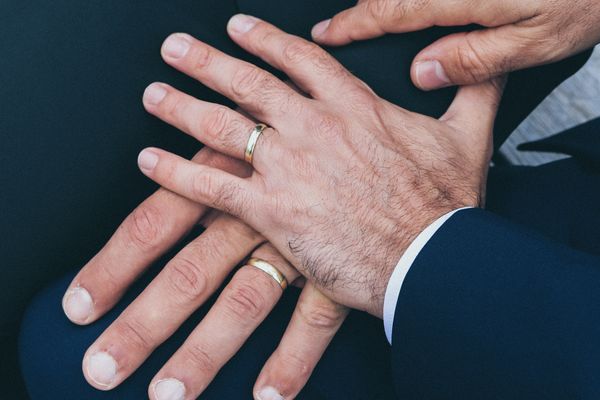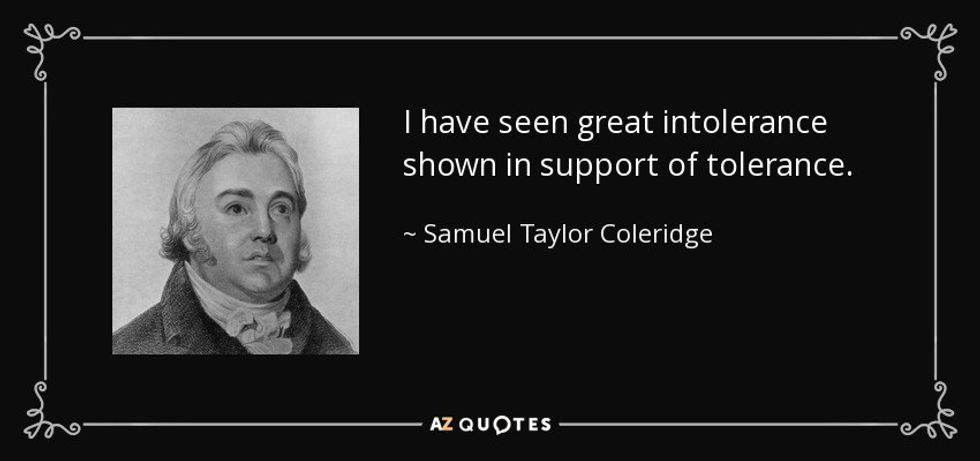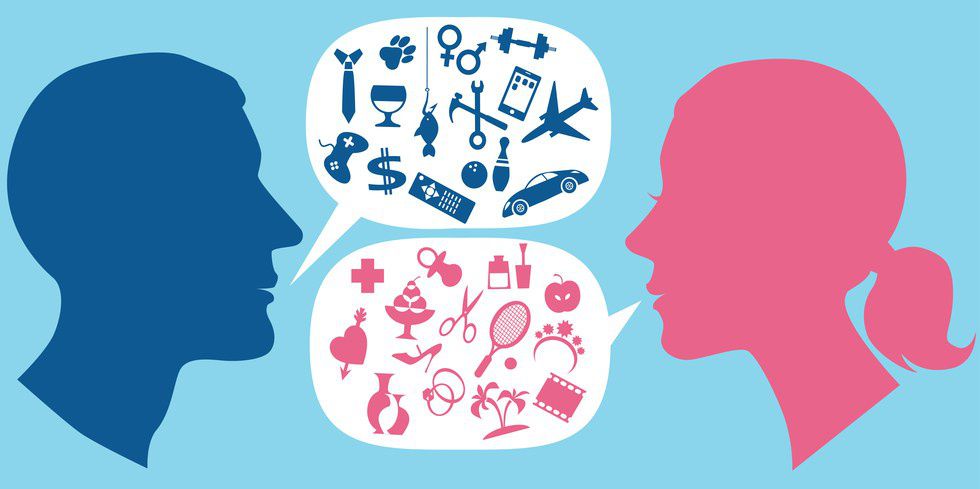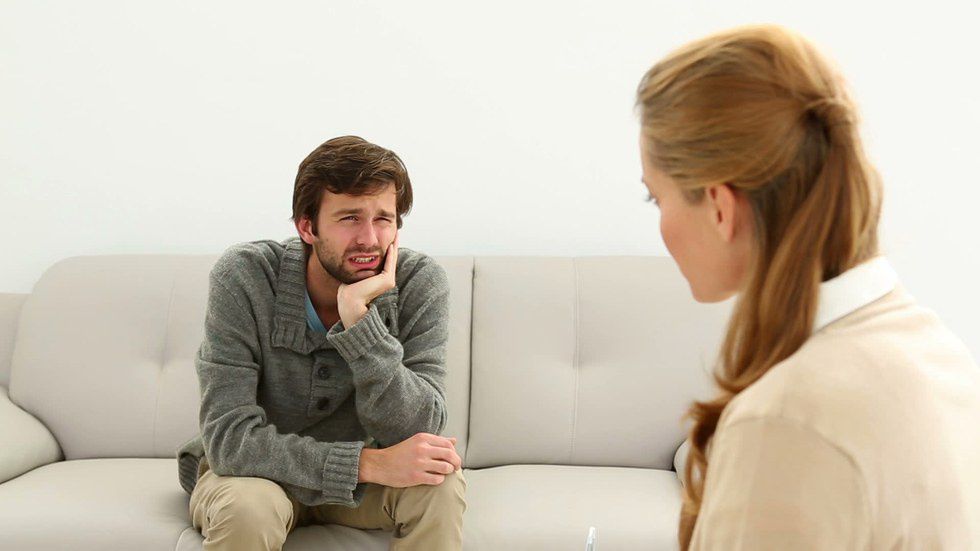All my life, I've been told that I seem wise beyond my years. I've definitely had experiences and dealt with things most people wouldn't even dream of or understand, but that doesn't matter. We're all human; we all have our personal issues, each perspective is valuable, and our experiences don't determine our worth. However, it's these differences I've experienced in my life that have granted me a rather uncommon mindset. I'm young, but my mentality most definitely isn't. While my opinions may not be the majority anymore, I hope those who feel the way I do take comfort, and for those who disagree with me, I hope they gain understanding.
It's no doubt that our culture today is an argumentative culture. Every opinion is scrutinized, much of the time before people are even finished explaining theirs. That's a problem in and of itself, but that's not the main issue. The issue here is that this generation doesn't understand the difference between "tolerance" and "acceptance". Merriam-Webster defines the verb "tolerate" as " to allow (something that is bad, unpleasant, etc.) to exist, happen, or be done", and "acceptance" as "the act of accepting something or someone". I can tolerate a certain behavior, but that doesn't mean that I accept it or endorse it, and nor do I have to. All too often, people who don't agree with the majority are labeled as "hateful bigots" and the like. The best example of this is same-sex marriage. One can tolerate it- it most definitely exists, and the government allows it. However, they don't have to accept it. Just because someone doesn't agree with same-sex marriage doesn't mean they're hateful. It doesn't mean they hate gay people, or that they're judging them, or that they think of gay people as less than others. They're allowed to have that opinion, and that's okay. Just because someone doesn't agree with you doesn't mean they're hateful or a bigot. We need to stop taking everything as a personal attack or insult. In my own experience, the most intolerant people were actually the ones claiming to be the most tolerant.
As Elite Daily reports, by age 21, 85 percent of men have had sex and 81 percent of women have had sex. This generation is definitely a "hook-up" culture. It's not uncommon to see articles promoting sexual liberation, and diverse sexual encounters. Do I agree with it? No. However, just because I don't agree with it does not mean I'm automatically shaming anyone who partakes in that culture or who doesn't agree with me. My opinion that sex should be reserved for marriage is a minority today. For those of us who feel this way, we can often feel very outnumbered. The joys of traditional dating are virtually dissolved from society, and quite frankly, I think they should be brought back.
Another way I don't conform to today's generation is my opinion of gender roles. To an extent, I like them. Shocking, right? Women should obviously be respected and paid the same as men (I don't call it feminism, as I think it's just common sense). Chivalry isn't completely dead, and I'd like a revival. People can be feminine men or masculine women and vice versa, but I think general societal roles aren't problematic, as they help structure society.
I know many will disagree with me on my next opinion, and that's perfectly okay. I say this as someone who has had personal experience in the LGBT community: I think all of these new genders and labels are absolutely ridiculous. Labels only further divide, and by implicating them, one is inherently admitting that there actually are roles assigned to each gender. I know it's said that sex and gender are different, but I disagree. Don't misinterpret me, though; I mean no disrespect to the LGBT community. I don't care if one is feminine or masculine, but don't confuse that with sex. Gender dysphoria is definitely real- but the solution is not to transition. As reported by Dr. McHugh to the Wall Street Journal, "When children who reported transgender feelings were tracked without medical or surgical treatment at both Vanderbilt University and London's Portman Clinic, 70%-80% of them spontaneously lost those feelings". Dr. McHugh also notes a study launched in the 1970's whose findings were further proven by a different 2011 study at the Karolinska Institute in Sweden. Johns Hopkins University launched a study in the 1970's comparing the outcomes of transgender people who had the reassignment surgery with the outcomes of those who did not. Their findings? "Most of the surgically treated patients described themselves as 'satisfied' by the results, but their subsequent psycho-social adjustments were no better than those who didn't have the surgery". My point is, gender dysphoria is an issue, but the solution is not to change one's body. The solution is therapy, to understand the underlying reason why someone feels the way they do (and no, I'm not talking about the stereotypical abusive "conversion therapy"). Society is complicated, and so are emotional and mental problems. We need to get to the bottom of them- not mask them with physical changes.
At the end of the day, we need to focus on common ground and listen to each other. To focus on our differences only divides. Granted, everything I stated is an opinion, and you may or may not agree, and that's okay. For the minority of people my age who share these opinions, you're not alone. I have lost both friends and family members due to my opinions, and this generation often makes me feel that my opinions are awful, hateful, and a disgrace; that I'm a hateful person because of my feelings. Knowing why someone believes something is just as important as knowing what they believe. Yes, I'm a Millennial, but I'm a rare one at that.

























